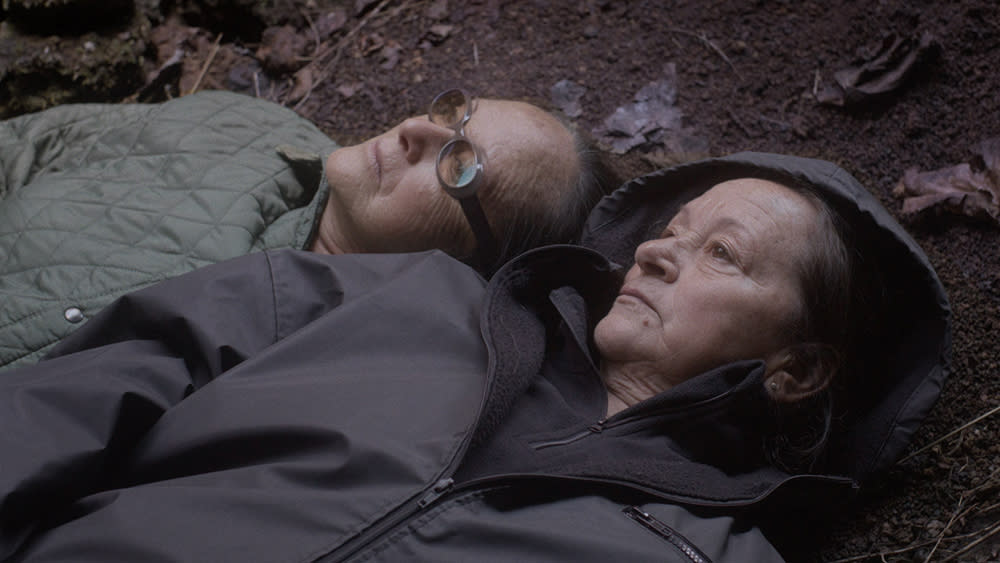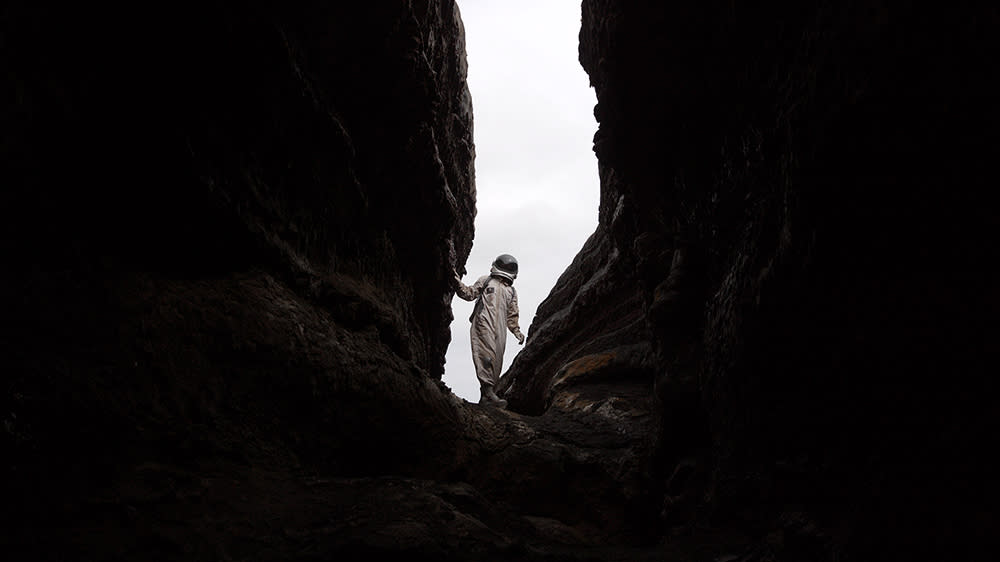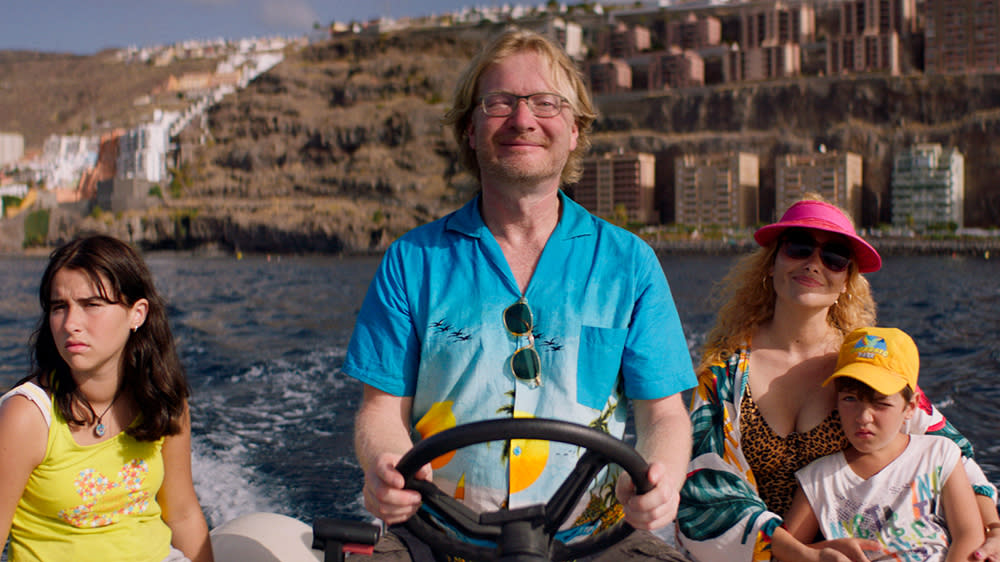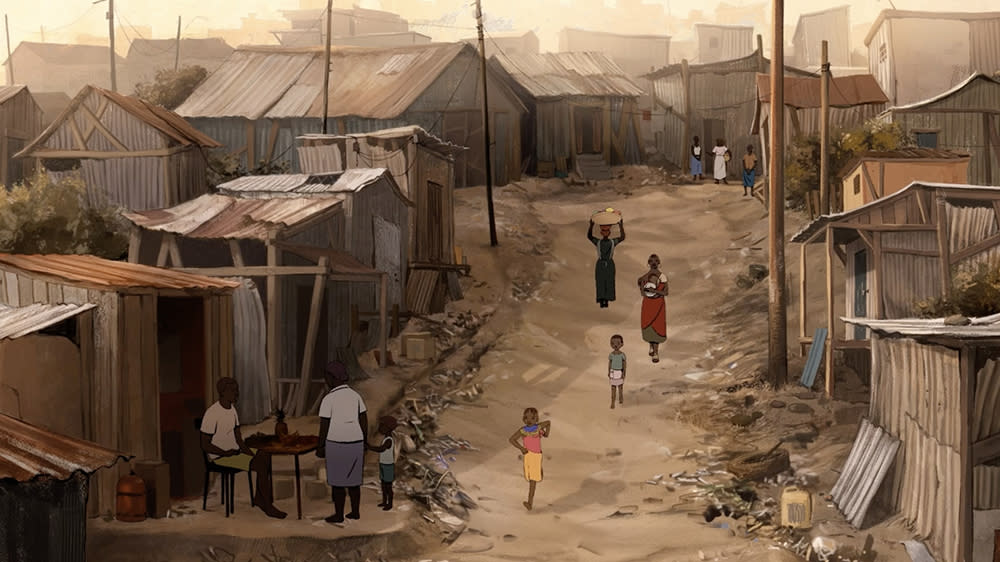‘La Lucha,’ Set in the World of Wrestling, Rolls in the Canary Islands as Homegrown Cinema Blooms (EXCLUSIVE)

After a decade working as a creative producer and DP (“White on White”), José Ángel Alayón, co-founder of Tenerife-based El Viaje Films, has moved into production on “La Lucha,” a feature film set against the background of lucha canaria wrestling, a contact sport dating back to ancient times.
“La Lucha” marks the latest title from Tenerife-based El Viaje Films, which this year celebrates its 20th anniversary. Behind 2015 international breakout “Dead Slow Ahead,” “The Undergrowth” which took two prizes at this month’s Malaga Festival and the standout 2021 “They Carry Death,” selected for Venice’s Critics Week, it also served as the Spanish producer on Chile’s Oscar entry “White on White,” a 2019 Venice Horizons best film and director entry.
More from Variety
'Who by Fire' Review: A Canadian Cabin-in-the-Woods Getaway Goes Strangely and Rivetingly Awry
'Saturn Return,' 'Radical,' 'Little Loves' Top Spain's Malaga Festival
Just a decade back, “La Lucha’s” shoot would have been notable for its very existence. Now it forms part of a domestic Canary Islands film scene which, though years in its build, is suddenly seeming to be coming into focus, a flurry of films breaking out from its archipelago base to earn praise and prizes at festivals, as Canarian cinema consolidates as an exciting growth axis in Spanish filmmaking.
That in turn is energizing. “It is extremely exciting to be part of this idea of construction of a cinematographic imagination in the Canary Islands, it hasn’t really existed before,” said Alayón. “I think it’s the most beautiful thing we are doing right now. It is what moves all of us at El Viaje Films; we enjoy this task, this constant reflection on what we are creating,” he added.
Canary Island Cinema: Ambition and Sophistication
“La Lucha” captures the ambition and sophistication of current Canary Islands film production, as well as its talent and financing structure.
It turns on Mariana, 17, whose only passion is lucha canaria wrestling. Lacking the physique to make it in the sport, one day, in a rage, she breaks the rules. Her father, a veteran “puntal,” a top-level wrestler, has his own issues: Physical injuries and coming to terms emotionally with the recent death of his wife.
“Between daily work, family, training and competitions, father and daughter try to get ahead in the struggle of life,” the synopsis reads.
In lucha canaria, a wrestler wins if any part of an opponent’s body, apart from their feet, touches the ground. “You must keep your feet on the ground to keep from falling. This metaphor, to resist, to remain on your feet, to hold on, to keep your balance, to fight seemed very powerful to me, one that I find fascinating: Of bodies that struggle to maintain themselves,” Alayón commented. “It is an idea that can be transposed onto many narratives, because this form of struggle is not contained to the sport, but in what continues to exist in the lives of these people after they leave the terrero (wrestling ring).”
“La Lucha” draws on top-notch talent from the Islands and mainland Spain, being co-written with Canarian Marina Alberti. Catalan Mauro Herce (“Fire Will Come,” “Matadero,” “Slimane”), part of El Viaje’s team, serves as DP. Canarian Silvia Navarro (“Circe”) is art director and Canary Island-based Emma Tusell (“Magical Girl,” “The Undergrowth”) the film’s editor.

Canary Island born Machín has said that “The Undergrowth” came from reflections on questions of “identity, belonging, and the dynamics of the place where me and my family came from.”
Likewise, Alayón says that lucha canaria is “more than a sport, it is almost a rite, something that has been practiced in the Islands since the first Berber settlers. We believe that there is something that remains there, something root, a core, of our idiosyncrasy.”
While tapping into, noting and exploring Canarian culture, like other Canary Island movies, “La Lucha” has been financed by a combination of Spanish and Canary Islands institutions, supported by Spain’s ICAA film agency, the Canary Islands Government and the Cabildo of Tenerife island authorities.
Again like many other larger Canarian movies, it is also made in international co-production, partnering with Colombia’s Blond Indian Films.
“We’ve always believed in and learned a lot from co-productions, from going out, from contrasting our projects to others abroad, from showcasing them and making them grow in the process, taking them to forums, looking for co-producers, showing the projects when they are in a more embryonic state,” said Alayón.
Current, Recent Canary Island Titles
“La Lucha” figures, however, among at least 10 features which have recently caught attention on the festival scene, in international and in Spain:
*“The Undergrowth” (“La Hojarasca”), from Machín, about three aging sisters settling their inheritance of family lands, played February’s Berlinale Forum, marking a milestone: the first 100% Canarian film to world premiere in Berlin. Playing at March’s Malaga Festival, it won best Spanish picture and director in parallel section Zonazine,
*Among its market premieres, Malaga’s Spanish Screenings featured Canary Island production “I’m Gonna Disappear,” (“Voy a desaparecer”), the tale of two estranged brothers’ reencounter, 10 years later, as one takes advantage of a prison furlough. Directed by Canarian Coré Ruiz, it is written with female lead Raquel Herrera.
*A third Spanish Screenings title, animated feature “Black Butterflies,” from David Baute at Santa Cruz de Tenerife-based Tinglado Film (“Climate Exodus”), depicts three women from very different parts of the world who all lose everything from global warming, emigrating to survive.
*Playing the Malaga Festival Fund & Co-Production Event (MAFF), Lucía Pérez’s “Ever & the Sharks,” (“El niño y el tiburón”) produced by Chémi Pérez at Cabo Sur Films in Las Palmas de Gran Canaria, proved a standout at August’s Locarno Festival Match Me!, a part coming-of-age tale, part high-seas adventure and part eco-drama.
*Also at Málaga’s MAFF, “The Outside” (“El Exterior”), the fiction feature debut of notable documentarian Víctor Moreno (“La ciudad oculta,” “Edificio España”) will shoot next year in the Canary Islands, set up at his archipelago-based KVFilms. Turning on an woman astronaut’s reconsideration of her perspective on the planet, it has been put through the Torino Script Lab 2022 y and Cinemart Rotterdam 2022 and won the top prizes at Abycine Lanza and Mecas.

*Pablo Larráin go-to actor Alfredo Castro will head the choral cast of “Three Dark Nights” (“Tres noches negras”), the third feature from Spanish-Chilean Theo Court, set up at El Viaje Films, and a standout at September’s San Sebastián Co-Production Forum and Ventana Sur’s Proyecta project competition.
*Co-produced by the Canary Islands’ 3 Doubles Producciones, animated family comedy “SuperKlaus” has been pre-sold over 40 countries by Pink Parrot, including key markets such as the U.K. (Kaleidoscope) and Germany (Splendid).
*In 2023, Tourmalet Films’ “Killing Crabs,” the fiction feature debut of Omar Al Abdul Razzak, won best Spanish film and actress (Paula Campos) at the Malaga Festival’s Zonacine showcase. A snapshot of a time and a place, Tenerife in the 1990s, it also took the Richard Leacock Award for best film at Las Palmas Film Festival. The film is a “family portrait seen through the eyes of a brother and sister whose childhoods are nearing their end,” Razzak explained to Variety last year.
*Directed by David Panteleón and José Victor Fuentes, “An Inhabited Volcano” – a record of the eruption of the Tajogaite volcano on La Palma in September 2021 laced with audio messages from a group of childhood friends Whatsapp group – world premiered at last year’s Visions du Réel in Switzerland, screened at the Valladolid Intl. Film Festival and was awarded at Madrid’s Márgenes festival.
*Co-produced by Tinglado Film, and currently in development, Dominican Genésis Valenzuela’s “Three Bullets” (Tres Balas”) was one of the talking points of the Locarno Festival, sweeping multiple awards in Open Doors, mixing colonial history, displacement and criminal investigation in a hybrid fiction-doc-come-essay reconsideration of the 1992 murder of Dominican immigrant Lucrecia Pérez.

Canary Island Industry Drivers
Why a Canary Cinema has come into existence is another matter. In many ways, the Canary Islands industry responds to a bigger picture.
Since 2015, Spain has began to introduce tax incentives – rebates for foreign productions, credits for national titles – which have ended up becoming some of the most attractive in Europe.
Prospects for 2024 look good in terms of international shoots, Natacha Mora, co-ordinator, Canary Islands Film, said at the Berlin Festival.
New incentives – such as from 2023 maximum tax relief available on a film lensed in the Canaries of up to €36 million ($38.9 million) – “have had an impact,” Mora said. “It looks like this year we’ll increase the number of shoots, compared to 2023 and maybe 2022, given their postponement to 2024 the Hollywood strikes. You can see the effect of the incentives’ increase.”
As big foreign shoots began to pour into the Islands, local filmmakers pushed to build their own Canary Islands industry.
The Canary Islands are more than a backdrop, Machín told Variety. “There is a whole world in the Islands.”
“One thing that I believe also influences many of our generation of filmmakers including Macu Machín, Victor Moreno, David Pantaleón, Nayra Sanz, Octavio Guerra, Marina Alberti, and so on is the idea that a tax incentive exists here. It has made us feel the need to react and for us to tell our stories,” added Alayón.

In reality, a domestic industry has been long in the making. The Canary Islands Government began offering production and development grants as of 2017. It had already created development labs, such as CreaDoc.
“Macu Machín is a case in point,” Cristóbal de la Rosa, the Canary Islands Government general manager of Cultural Innovation and Creative Industries, told Variety at the Berlin Film Festival. “The Undergrowth” received a development grant and was put through Canary Islands labs at MiradasDoc, CreaDoc, Acceleradora and Mecas, he noted, saying a support system was really put in place in 2018. Many of the titles suddenly bursting onto the scene have taken four or five years, plus one pandemic, to get made.
“You won’t achieve anything in just one year. But if you keep on for four-to-five years, backing projects from early upstream, and continue to back them if they show promise, there’s a possibility” of getting results, De la Rosa said.
“The key is the talent,” he added.
Talent was there even before their government put its back behind a local filmmaking scene. The Canary Islands had a fertile short film sector featuring titles from Al Abdul Razzak, Moreno and Fuentes, encouraged by La Palma’s Festivalito short film festival, which launched in 2002, Mora noted.
Volcano International Productions was founded in 1994. One of the Canary Islands biggest breakouts, Mauro Herce “Dead Slow Ahead,” won a Locarno Special Jury Prize in 2015.
“The most important thing that has happened in filmmaking in the Canary Islands maybe is that people who had the need to make films, to seek a somewhat genuine vision and reflect on ourselves, have come together: David Pantaleón, Macu Machín, Víctor Moreno, Nayra Sanz, Samuel M. Delgado and Helena Girón, Silvia Navarro, Octavio Guerra, and many others,” said Alayón.
New producers are now breaking through. This year the Canary Islands launched a minority co-production fund, De la Rosa noted. “It allows Canary Islands companies to have a small part in larger productions, and learn from that,” he said.
There’s still a lot to be done, everybody agrees. Canary Island producers would make easier use of tax rebates than credits, Alayón suggested.
“Our bureaucracy needs to be more agile,” said De la Rosa. “We also have to focus more on high-level training.”
But a Canary Islands cinema, auteurist and of international ambition, now exists.
“We see that there is a commitment and it is already bearing fruit. More filmmakers are making more films. Films from the Canary Islands are being talked about around the world and we are seeing that our local stories are also universal ones,” Alayón enthused.

Best of Variety
Sign up for Variety’s Newsletter. For the latest news, follow us on Facebook, Twitter, and Instagram.
